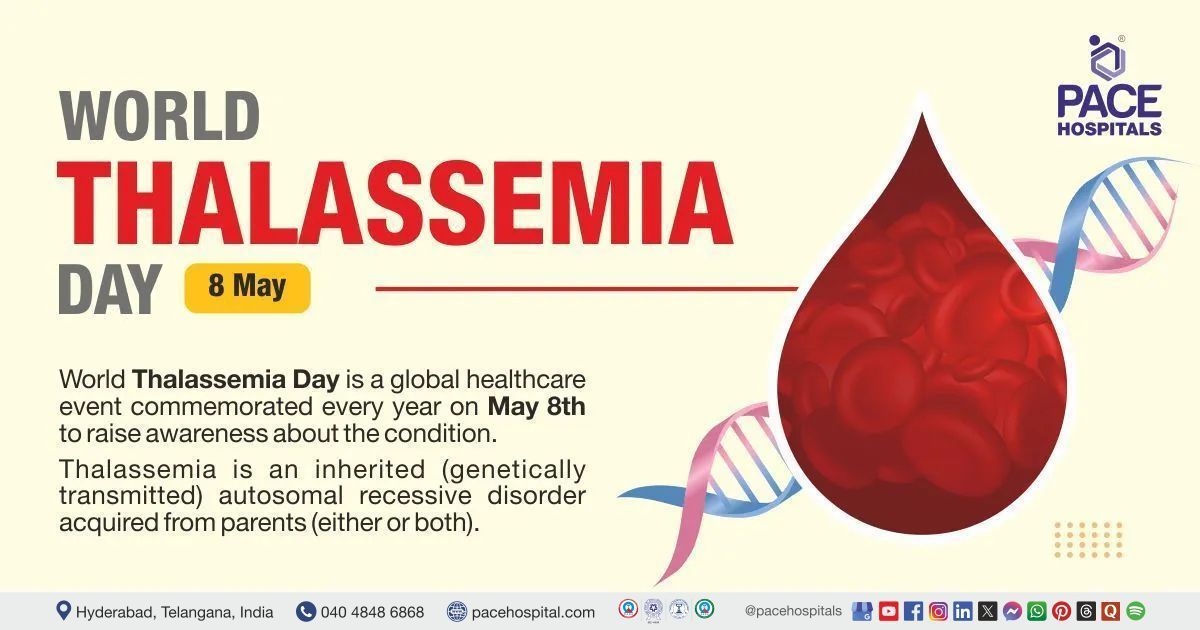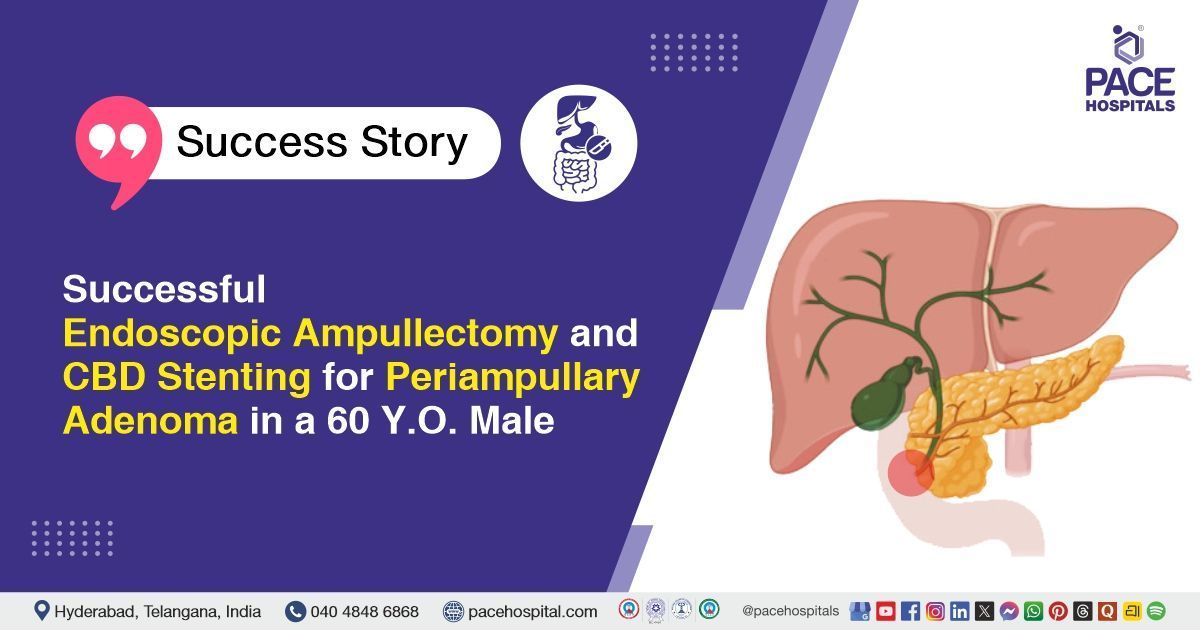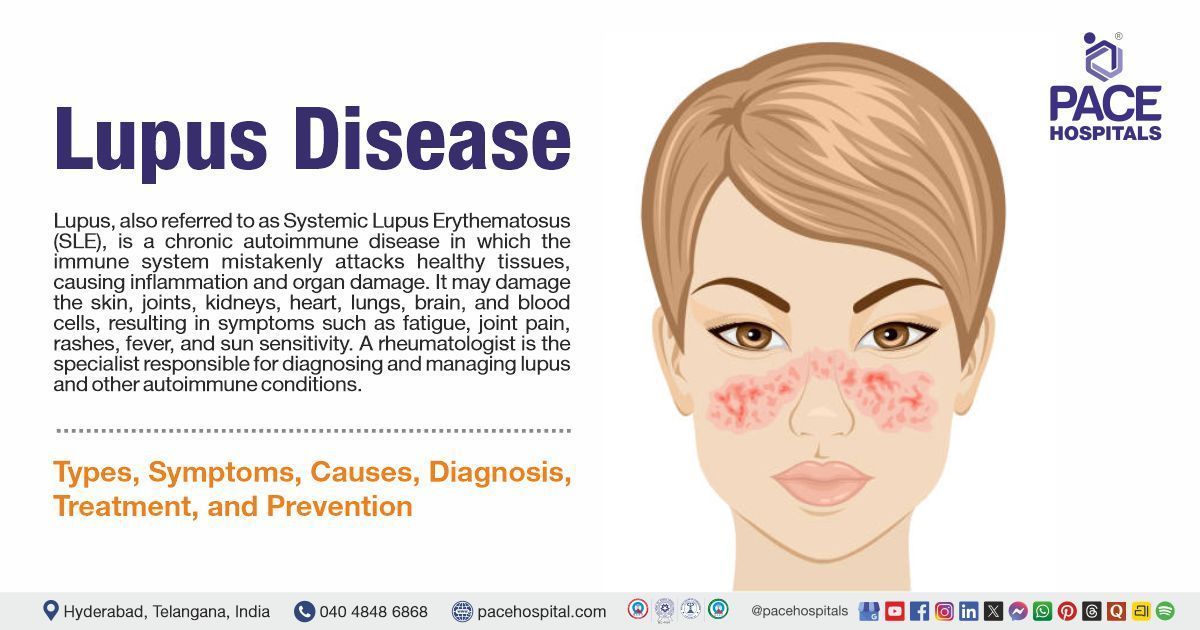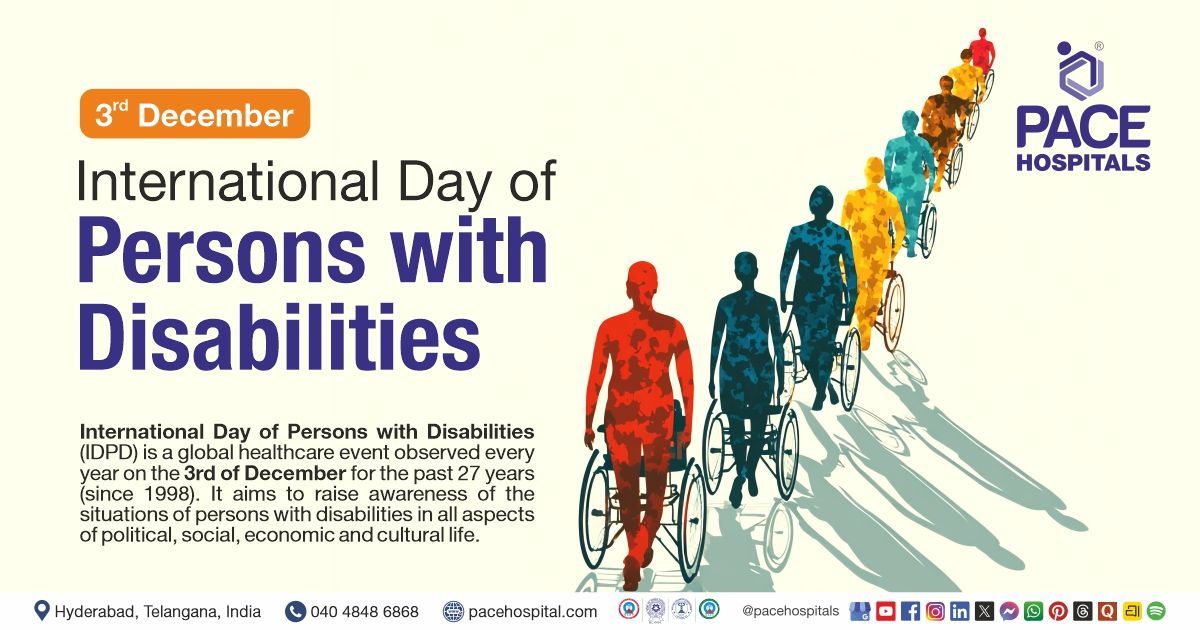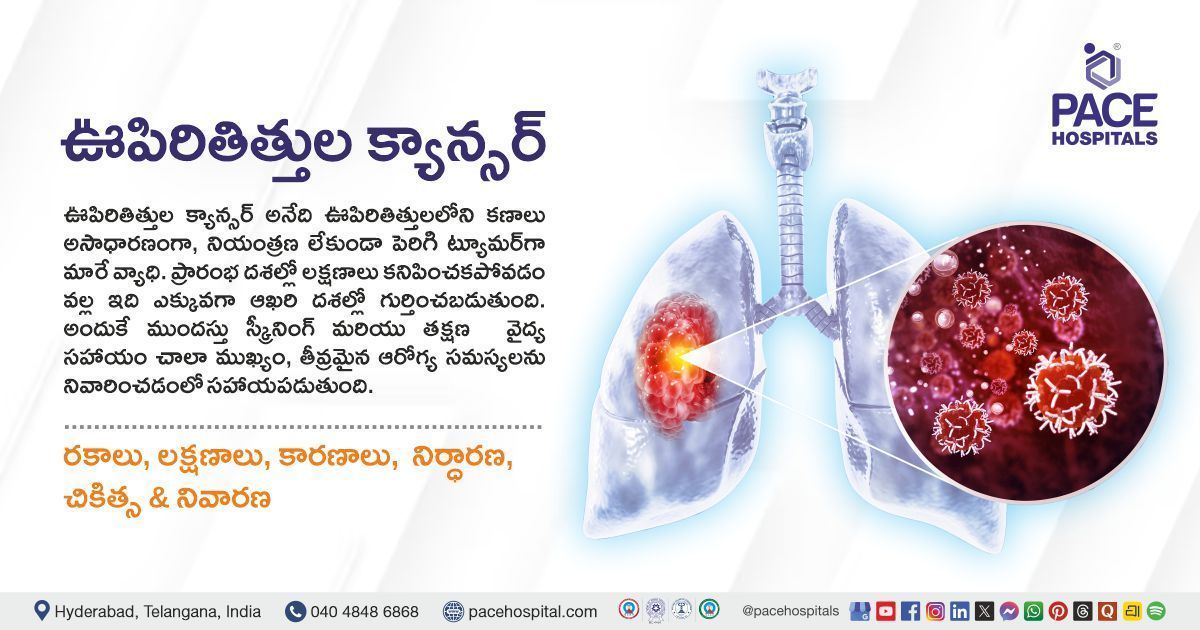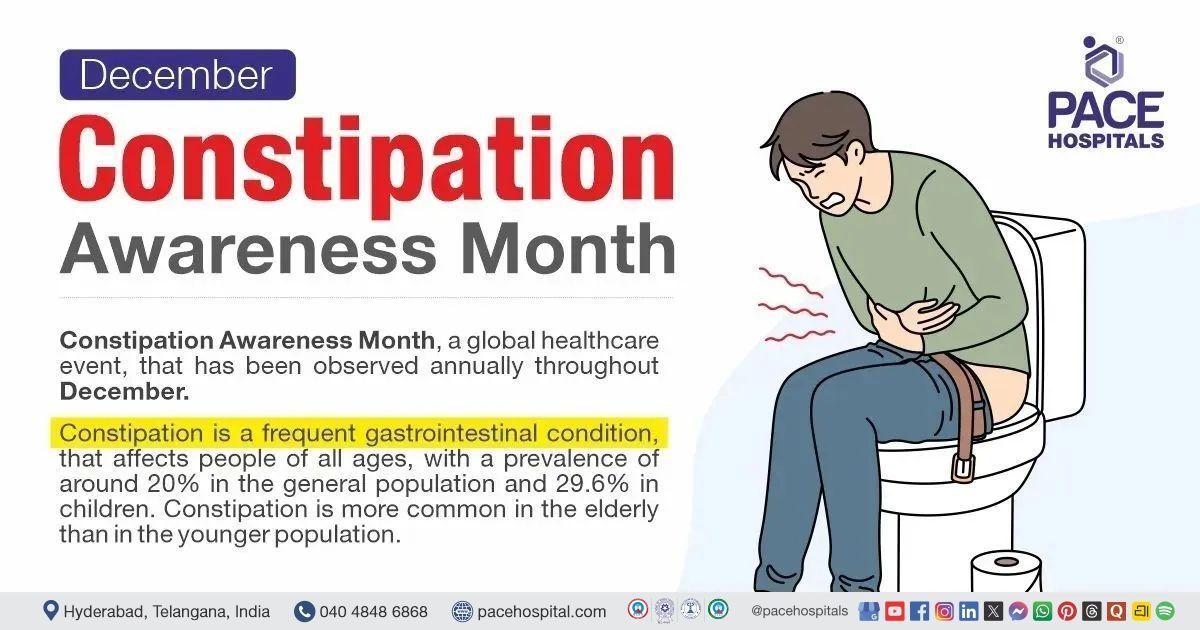World Thalassemia Day, 8 May 2025 | Theme, Importance & Prevention
Pace Hospitals
World Thalassemia Day is a global healthcare event commemorated every year on May 8th to raise awareness about the condition among the local public and policymakers, apart from supporting and strengthening the morale of the victims who have battled for years with this fatal disease.
On this day, many local and international organisations, patient associations, public authorities, and healthcare professionals gather together to promote the importance of prenatal screening, counselling, prevention, management, or treatment of thalassemia in a patient-centred manner.
Importance of World Thalassemia Day (WTD)
Thalassaemia is an inherited (genetically transmitted) autosomal recessive disorder acquired from parents (either or both). It affects the red blood cells due to a genetic mutation, leading to the depletion of haemoglobin's alpha and/or beta-globin chains. This results in low production of red blood cells and a lack of oxygenated blood supply to the body parts (anaemia). More than one lakh patients in India are thalassemia victims, with 40 lakh carriers.
Thalassemia affects 56,000 pregnancies worldwide, of which 30,000 have thalassemia major, and most of these patients were born in poor or underdeveloped nations. The treatment for major thalassemia can be exceedingly expensive and may involve stem cell transplants, continual blood transfusions, and chelation therapy. It is, therefore, essential to prevent congenital defects (thalassemia) before birth rather than keep trying to treat the condition after birth.
Prenatal screening can aid in identifying the condition of thalassemia at the foetal stage, and its awareness among local people plays a pivotal role in controlling the thalassemia numbers. World Thalassemia Day can be one of the opportunistic platforms where several private and governmental organisations carry out public education and healthcare campaigns for pregnant women, including genetic screening, counselling, and prenatal diagnosis. In addition, on this day, policymakers might plan or implement new strategies/policies for thalassemia victims, including free blood transfusions or providing financial assistance.
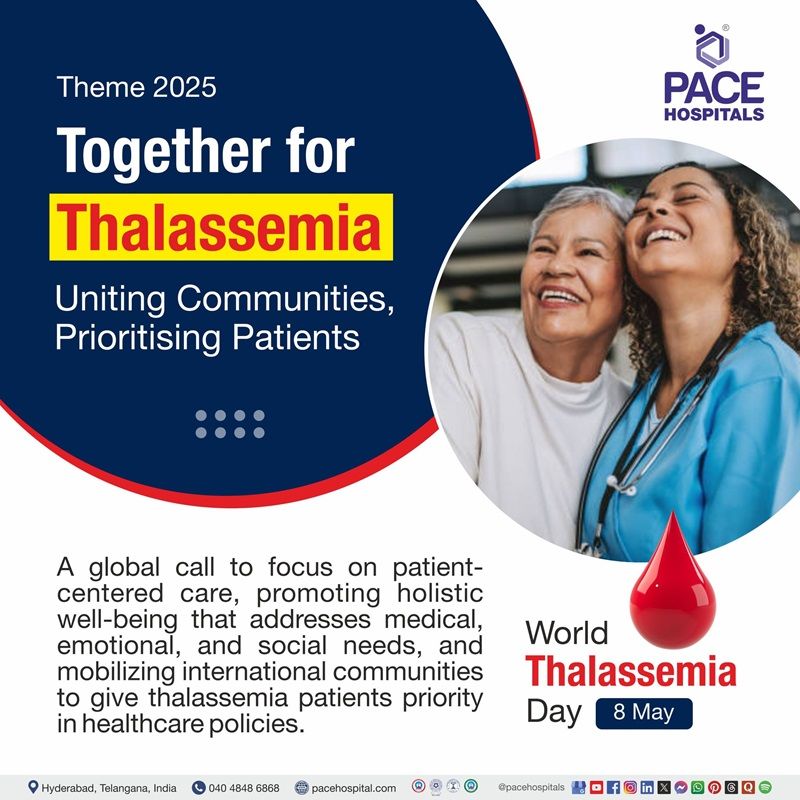
World Thalassemia Day 2025 Theme
This year, 2025, the World Thalassemia Day Theme is "Together for Thalassaemia: Uniting Communities, Prioritising Patients”. The theme focuses on patient-centered care, promoting holistic well-being that addresses medical, emotional, and social needs, and mobilizing international communities to give thalassemia patients priority in healthcare policies.
Year By Year Themes for World Thalassemia Day
- World Thalassemia Day 2024 Theme: Empowering Lives, Embracing Progress: Equitable and Accessible Thalassaemia Treatment for All
- World Thalassemia Day 2023 Theme: Be Aware. Share. Care: Strengthening Education to Bridge the Thalassaemia Care Gap
- World Thalassemia Day 2022 Theme: Be Aware. Share. Care: Working with the global community as one to improve thalassemia knowledge
- World Thalassemia Day 2021 Theme: Addressing Health Inequalities Across the Global Thalassaemia Community
- World Thalassemia Day 2020 Theme: The dawning of a new era for thalassaemia: Time for a global effort to make novel therapies accessible and affordable to patients
- World Thalassemia Day 2019 Theme: Universal access to quality thalassaemia healthcare services: Building bridges with and for patients
- World Thalassemia Day 2018 Theme: Thalassaemia past, present and future: Country practices, progress and growing recognition of patients’ rights
History of World Thalassemia Day (WTD)
The first World Thalassemia Day, or International Thalassemia Day, was declared on May 8, 1994, by Panos Englezos, the president and founder of the Thalassemia International Federation (TIF). In honour of his (Panos Englezos) son George and the numerous thalassemia patients who battled this disease, Panos Englezos established this day.
Screening for Thalassemia
The screening procedures include prenatal testing, done before the baby is born. The following tests are used to assess the presence of thalassemia:
- Chorionic villus sampling: Typically performed between the 11th and 14th weeks of pregnancy. A tiny sample of placental tissue is taken using a fine needle for further evaluation, often inserted through the mother's abdomen.
- Amniocentesis: A small sample of the fluid encircling the baby is taken, typically around the 16th week of pregnancy, by inserting a fine needle through the mother's stomach into the uterus. Some of the infant's cells are present in the fluid, which can be used to screen for thalassemia.
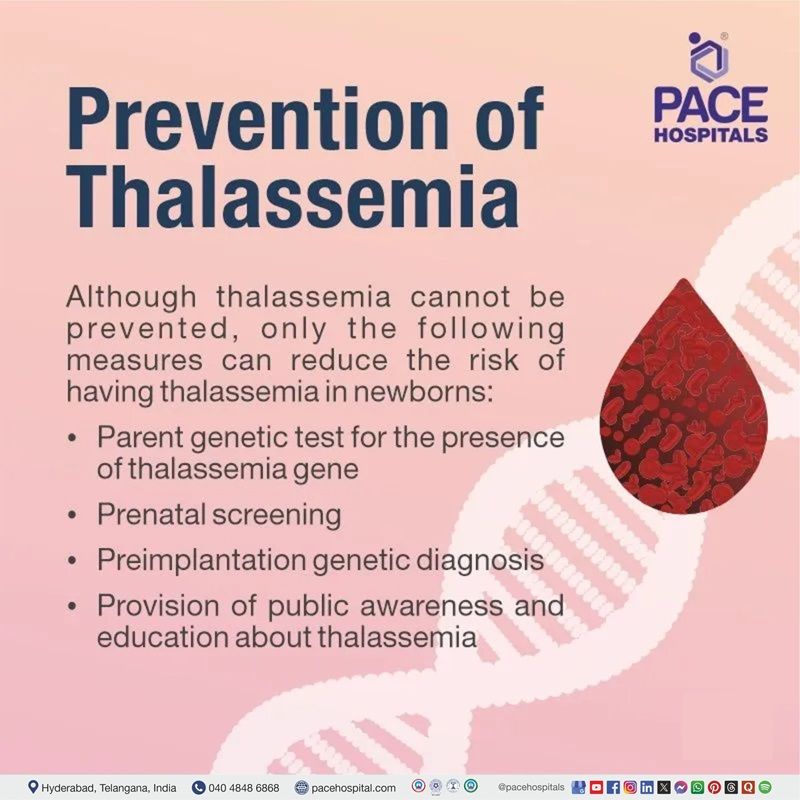
Prevention of Thalassemia
Although thalassemia cannot be prevented, only the following measures can reduce the risk of having thalassemia in newborns.
- Parent genetic test for the presence of thalassemia gene
- Prenatal screening
- Preimplantation genetic diagnosis
- Provision of public awareness and education about thalassemia
Share on
Request an appointment
Fill in the appointment form or call us instantly to book a confirmed appointment with our super specialist at 04048486868

